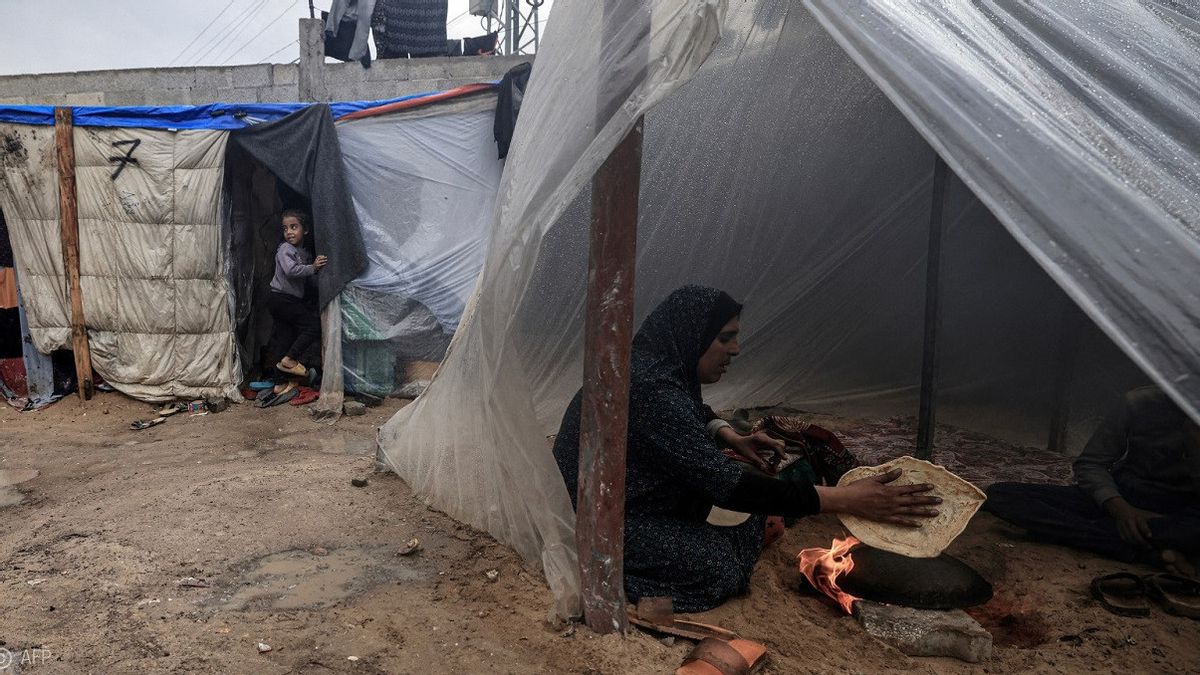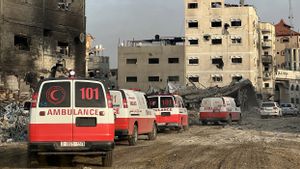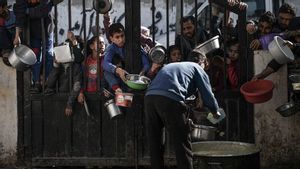JAKARTA - The World Health Organization (WHO) recorded at least 32 deaths due to malnutrition in the Strip currently hit by the Hamas-Israel war, with 28 of them children under the age of 5 (toddlers), said Director-General Tedros Adhanom Ghebreyesus.
"There have been 32 deaths caused by malnutrition, including 28 of them children under the age of 5," he said in a press statement, reported by WAFA on June 13.
"Most of the population of Gaza is now facing severe hunger and famine-like conditions," he continued.
"Although there have been reports of increased food deliveries, there is currently no evidence that those who need it most are receiving sufficient quantity and quality of food," he said.
He further said that his organization together with partners have been trying to improve nutrition services.
Commenting on the need for an immediate ceasefire in the war-torn Gaza Strip, Ghebreyesus noted that WHO welcomed the UN Security Council resolution adopted on Monday, which called for a full and immediate ceasefire.
"We urge all parties to take immediate steps to implement the resolution and end the suffering of millions of people permanently," he said.
"We urge all parties to take immediate steps to implement the resolution and end the suffering of millions of people permanently," he stressed.
Highlighting the escalating health crisis in the occupied West Bank, he said "WHO has documented 480 attacks on health care in the West Bank since 7 October last year, resulting in 16 deaths and 95 injuries."
"While the world's focus is on Gaza, there is also an escalating health crisis in the West Bank, where attacks on health care and restrictions on people's movement are hindering access to health services," he said.
"Since the war on Gaza began, 508 Palestinians have been killed in the West Bank, including East Jerusalem, including 124 children. More than 5,000 people have been injured, including around 800 children," Tedros said.
"In most parts of the West Bank, clinics are only operating two days a week, and hospitals are operating at around 70 percent capacity," he added.
SEE ALSO:
In addition, he also identified the construction and expansion of colonial settlements as the main reason for restricting Palestinians' access to health services.
"Illegal settlements have expanded in the occupied West Bank, which has an impact on residents' access to health services," he said.
He concluded, "the best medicine is peace" and urged "all parties to immediately implement the Security Council resolutions."
The English, Chinese, Japanese, Arabic, and French versions are automatically generated by the AI. So there may still be inaccuracies in translating, please always see Indonesian as our main language. (system supported by DigitalSiber.id)


















